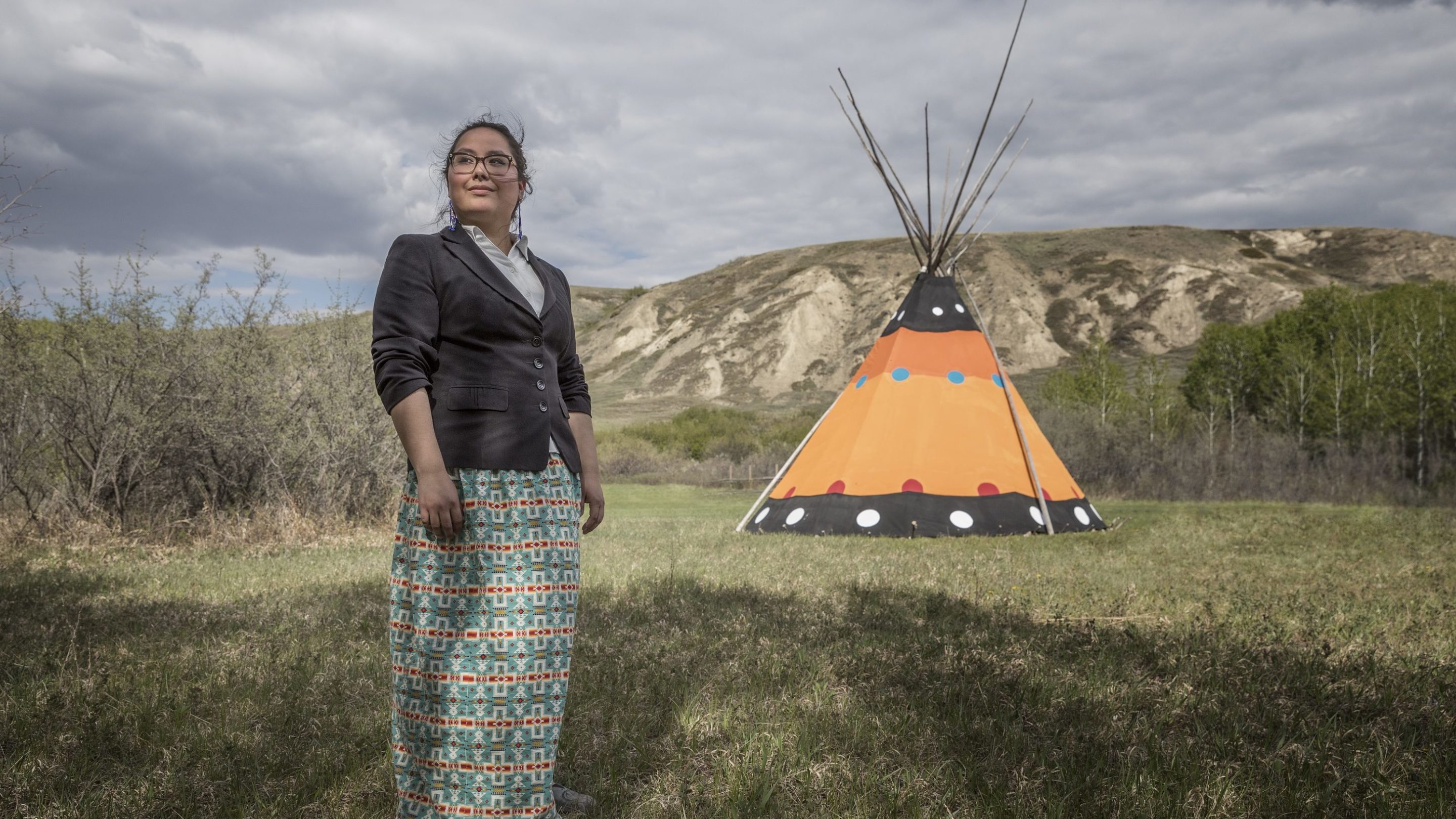My name is Liana Wolf Leg. I’m a 25-year-old Blackfoot woman from the Siksika Nation reserve in Southern Alberta. I’m also a first-year university student pursuing my Bachelors of Education at the University of Calgary.
The calls for the death of the oil and gas industry by senior political leaders, and the University of Guelph recently joining UBC and Concordia in saying they will divest of energy investment, has me fearful.
I am afraid of what this means for me and my Indigenous peers who rely on other options to fund their post-secondary education when government funding is not available. This is a letter to my Indigenous family about why it feels like my dream of getting a further education is being threatened.
I have three strikes against me. I am Indigenous. I am a woman. I am educated. Another strike I will willingly put on myself that may anger my Indigenous peers is that I work in and support an energy sector that is helping me through university. I did not receive band funding to pursue my studies as there was more demand for funding than was granted by my community.
Some of our First Nations people have been against energy in recent times, but it is a reality to say that the companies that some are so against provide the most scholarships for Indigenous students, more so than our government — whose responsibility it is.
I know many of my peers rely on the scholarships that are provided through this process just to make it through the school year. It’s difficult being a student but it’s even harder being an Indigenous student. Moving from home and going into a territory that wasn’t built for us — that’s empowerment.
Many Canadian energy companies have Indigenous educational scholarship programs that support all types of post-secondary education from trades diplomas, technical and non-technical certifications, and full undergraduate or graduate degree programs.Companies also offer Indigenous summer student opportunities that lead to valuable experience leading into full after-graduation employment.
For example, TC Energy’s Indigenous Legacy Scholarship awards 50 grants of $5,000 per year to assist with tuition and other education related expenses. Another long-standing program is Canadian Natural Resources’ Building Futures Scholarship, which has awarded $1.37 million to over 1,200 students from areas near its operations since 2002.
What right do we have to put the oil and gas sector down? There are many Indigenous people who work within energy who are making huge changes and developments. If we just get angry about not being heard and start tearing the energy sector down then we won’t get the results needed. Many have tried that in the past with little to no result. Instead we need to speak with peace in our voice and look at things from all sides.
Our people are profiting through energy, not only through receiving scholarships, but also with employment. Why shouldn’t we be able to have these benefits? Should we not take this as a small form of reconciliation? It may not be the one that we want but it’s the opportunity we have today. Why do we not take this and learn what they’re teaching us so that we may educate ourselves by doing and being a part of the opportunity today, and then go off into this world and change it? It’s easier said than done but there are so many Indigenous leaders out there who have gone out and done so.
If we completely remove our Indigenous people from the energy sector, then we lose our voice within these areas. If we all speak together for change then things will get done with a benefit to all involved, not just ourselves.
I stand for continued investment in energy by educational institutions, and beyond that, Indigenous participation in energy. Being a part of energy has allowed me to explore my own voice and ideas, which has empowered me to write this open response to something I see that is wrong.
I acknowledge and appreciate the role energy has in granting scholarships to myself and my peers, and also in giving us an important role in defining how energy works for Indigenous people – now and into the future.
